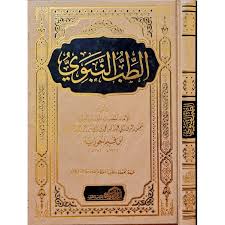Thibbun Nabawi: Medicine Based on the Quran and Hadith

The Unpad Media Channel of the Padjadjaran University Grand Mosque held a Special Isra Mikraj Thematic Study titled "Thibbun Nabawi: Prophet Muhammad's Healthy Practices, A Health and Community Review" online on Saturday (February 10, 2024). This thematic study was presented by resource person Junardi Harahap, M.Si., PhD, a lecturer at FISIP Unpad.
The daily chairman of the DKM Masjid Raya Unpad invited the congregation to revive and practice Thibbun Nabawi medicine, which was exemplified by Prophet Muhammad (PBUH).
"Prophet Muhammad (PBUH) became a role model for living a healthy life, and this was also followed by his companions who lived healthily. Of course, this is the key to health obtained through daily practice with the prophetic method of treatment, or what is called Thibbun Nabawi," explained Junardi.
Thibbun Nabawi is an Islamic medical method that developed from the 7th to the 12th century. This method produced many expert Islamic physicians, such as Al-Razi in the 9th century, Al-Zahrawi in the 10th century, Ibn Sina in the 11th century, and Ibn Rushd in the 12th century.
During those centuries, Junardi said, the development of Islamic medicine was very rapid with works of books, encyclopedias of Islamic medicine, and also medical instruments. During Al-Zahrawi's time, various surgical tools were also discovered, such as clamps, scalpels, forceps, cauterization tools, catheters, specula, and sponges.
"Of course, these are still used in the world of modern medicine today," he said.
The lecturer in Health Anthropology explained that Thibbun Nabawi medicine is treatment sourced from the Quran and Hadith. This treatment is far from elements of shirk (polytheism).
In Thibbun Nabawi medicine, Junardi stated, it is Allah SWT who heals. The aspect of aqidah (creed) is strongly emphasized in this treatment, ensuring that it is halal according to fiqh (Islamic jurisprudence) and free from aspects of shirk.
"Commonly practiced treatments include bekam (cupping), ruqyah (exorcism/spiritual healing), honey, black seed (habbatussauda), olive oil, figs, and siwak (a natural toothbrush)," he said.
Therefore, Junardi invited the congregation to return to Islamic medicine, which contains many health benefits.
"The aspect of treatment is natural and holistic. Moreover, this treatment has been exemplified by Rasulullah SAW and his companions, who practiced the example of the Prophet to achieve health," he concluded. (release)* Source: https://www.unpad.ac.id/2024/02/thibbun-nabawi-pengobatan-berbasis-al-quran-dan-hadis/
Administrator
Related Articles

Thibbun Nabawi: Medicine Based on the Quran and Hadith
By Administrator